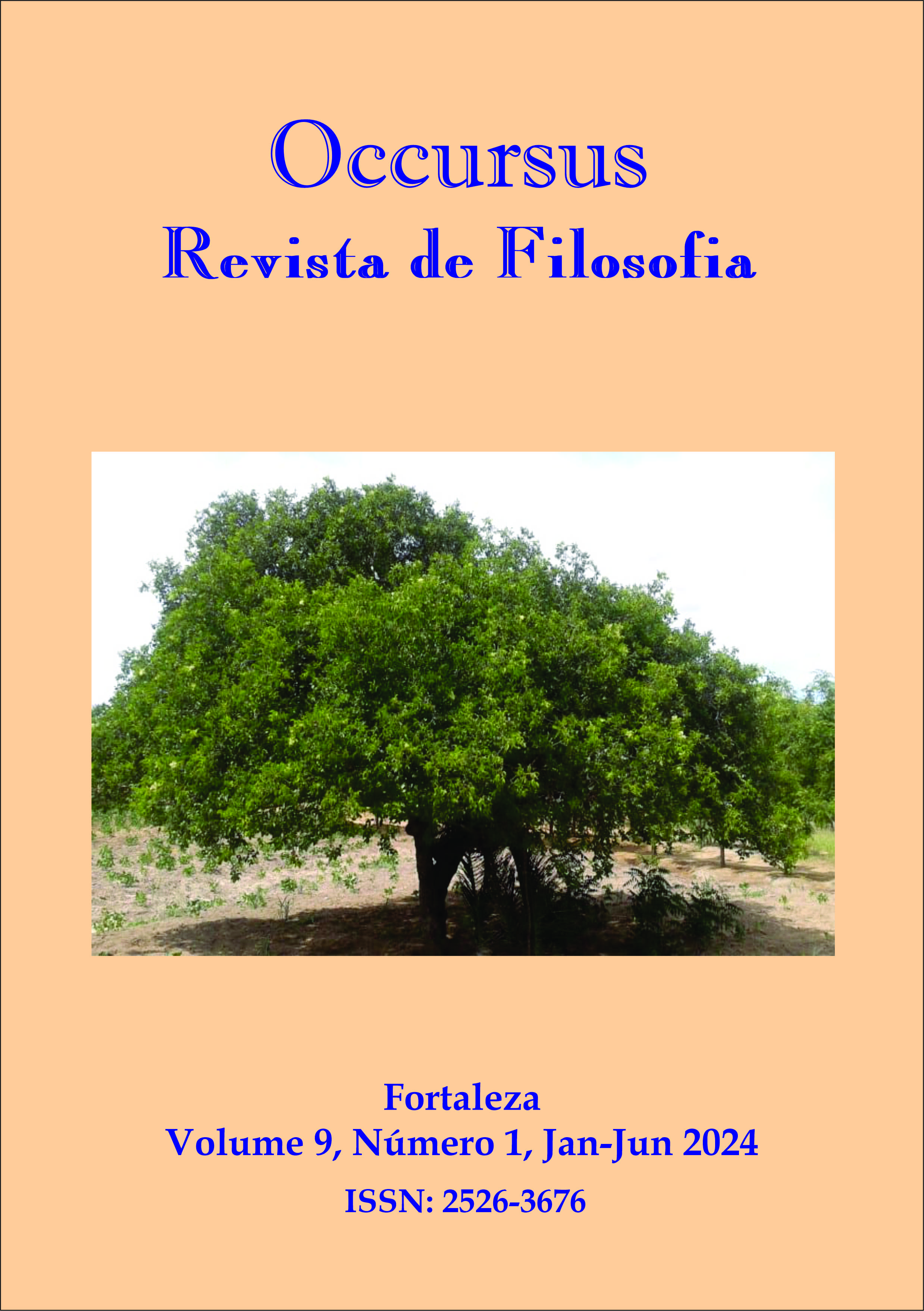Imanência e ética na Filosofia de Benedictus de Spinoza
DOI:
https://doi.org/10.52521/occursus.v9i1.12682Palavras-chave:
Spinoza. Deus. Substância. Ética. Imanência.Resumo
O presente trabalho busca analisar os principais aspectos da ética spinozista, sobretudo, a sua relação com a imanência e como essa relação possibilitou o desenvolvimento de um novo conceito de realidade que se distingue dos conceitos defendidos pelas filosofias tradicionais. Em sua principal obra intitulada Ética, Spinoza nos apresenta uma interpretação de Realidade que foge do quadro teológico dualista e mecanicista marcado por Descartes, inaugurando uma visão de mundo baseada na totalidade da relação dos entes.
Referências
BIASOLI, Luís Fernando. Deus: Causa Sui, Razão e Transcendência nas Mediações Físicas de Descartes. Porto Alegre: PUCRS, 2011.
DELEUZE, Gilles. Spinoza: Philosophie pratique. Paris: Les Éditions Minuit, 2003.
FRAGOSO, E. A. da R. As definições de causa sui, substância e atributo na Ética de Benedictus de Spinoza. UNOPAR Cient., Ciênc. Hum. Educ., Londrina, v. 2, n. 1, p. 83-90, jun. 2001.
KAROUI-BOUCHOUCHA, Faten. Spinoza et la question de la puissance. Paris: L’Harmattan, 2010.
SPINOZA, B. Ética. Tradução de Tomaz Tadeu. Belo Horizonte: Autêntica, 2009.
SPINOZA, B. Tratado da reforma da inteligência. Tradução e notas de Lívio Teixeira. São Paulo: Nacional, 1966.
TEIXEIRA, Lívio. Ensaio sobre a moral de Descartes. USP/FFCL, 1990.
TEIXEIRA, Lívio. A doutrina dos modos de percepções e conceito de abstração na filosofia de Espinosa. São Paulo: Editora UNESP, 2001.
PEDRO, Ana. A ética como o conatus de Espinosa. Cadernos Espinosanos, São Paulo, n. 29, p. 26-36, jul-dez 2013.
Downloads
Publicado
Como Citar
Edição
Seção
Licença
Copyright (c) 1969 Esthella de Carvalho Santos, Wandeilson Silva de Miranda

Este trabalho está licenciado sob uma licença Creative Commons Attribution 4.0 International License.




